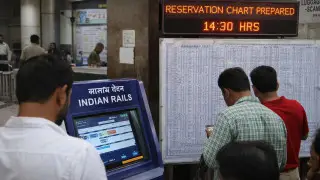
Flickr
As the year draws to a close, employees find themselves grappling with tax-related matters and investment declarations, particularly those residing in rented accommodations. Understanding the nuances of House Rent Allowance (HRA) becomes crucial for availing tax deductions. One frequently asked question is whether both rent receipts and agreements are indispensable for successful HRA claims.
According to experts, relying solely on a rent agreement might fall short for securing HRA exemption. Rent receipts play a pivotal role in substantiating that the stipulated rent in the agreement has indeed been paid. Therefore, it is advisable to maintain both rent receipts and agreements, serving as crucial evidence to present to assessing officers when necessary.
On potential risks, as per advisors, underscoring the absence of rent receipts poses a risk of the income tax department rejecting HRA claims. Mere execution of a rent agreement does not guarantee actual rental payments, especially when agreements involve family members. The assessing officer may reject the claim without supporting documentation demonstrating the real payment of rent.
When filing Income Tax Returns (ITR), it is imperative to retain evidence of claimed tax exemptions or deductions. The assessing officer may request proof during the ITR processing. Failure to provide necessary documents, such as rent receipts, could lead to the rejection of HRA tax exemption claims, even with a valid rent agreement in place.
Experts underscore the discretionary power of the assessing officer in accepting, rejecting, or verifying claims in an ITR. While rent receipts enhance the credibility of an HRA claim, officers may consider other factors to assess authenticity. Soni recommends collecting rent receipts for payments made through the banking channel for added credibility
To mitigate the risk of potential HRA claim rejection, tax experts advise employees to maintain both rent receipts and rent agreements as documentary evidence. Rent receipts should include crucial details like the landlord's name, address, payment amount, TDS deductions (if applicable), and the mode of payment. Additionally, affixing a revenue stamp is recommended for monthly cash payments exceeding Rs 5,000.
Employees can secure HRA tax exemption by furnishing proof of rent payment to their employer, reflecting in Form 16. Alternatively, if proofs are not submitted to the employer, the exemption can be claimed during ITR filing. Proofs must be provided promptly if doubts arise to avoid excess TDS deduction. Submission of mandatory PAN or Aadhaar to the employer is necessary if the annual rent exceeds Rs 1 lakh, with TDS deduction obligatory if the monthly rent surpasses Rs 50,000, particularly in dealings with non-resident landlords.
Nonetheless, optimising HRA tax exemption requires meticulous paperwork and adherence to expert advice. Maintaining well-organised records and promptly submitting necessary proofs will facilitate employees in smoothly claiming HRA tax benefits.













Copyright © 2025 Top Indian News
